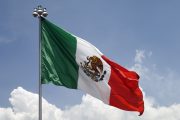
Americans who understand that international trade agreements (especially multilateral deals), by their very nature, threaten our national sovereignty, were hopeful when President Donald Trump threatened to terminate the North American Free Trade Agreement (NAFTA). The original NAFTA deal was crafted by President Bill Clinton and his Mexican and Canadian counterparts, with the enthusiastic support of most Republicans in Congress.
Today was supposed to be the “deadline” for a revamped agreement to replace the original NAFTA deal, which was reached in 1994. Unfortunately, although there appears to be some snags in the three NAFTA nations (the United States, Canada, and Mexico) reaching a new deal, the delay is believed to be only temporary.
During his campaign for president, Trump regularly pointed to the NAFTA deal as an example of how the United States was often taken advantage of in trade agreements. But, the author of The Art of the Deal might have been simply staking out a better negotiating position. Indeed, there are some expected changes in the ultimate NAFTA deal that are touted as better for America.
For example, the pact with Mexico (the three countries each makes a separate agreement with the other two) stipulates that the three NAFTA nations make greater use of steel, glass, plastics, and aluminum than was the case with the present NAFTA. Instead of the present 62.5 percent of the value of an automobile required to be produced in North America, the new deal calls for 75 percent of the value of the car to be produced within the three countries.
Yet, like any such agreement, while it contains the word “free” in its title, that is a dubious use of the term. As Reuters noted, “Through the side agreements, the new arrangement pushes North America closer to ‘managed trade,’ a more interventionist model that could benefit large companies able to tailor output toward quotas but could hurt consumers with higher prices.”
Mexico’s economy minister, Ildefonso Guajardo, while expressing optimism at the prospects for a new agreement earlier this month, noted there were potential obstacles. Guajardo did not specify the areas of contention, but it is thought that there was Mexican reluctance to accede to Trump’s demand that Mexican auto workers get paid higher wages. Presently, Mexican auto workers receive significantly lower wages than their U.S. counterparts.
This is an example of the “managed trade” mentioned by Reuters. It is understandable, of course, that Trump, who ran on a platform of “bringing back” good-paying factory jobs to America, would want to see Mexican wages be closer to those found in the U.S. There is little doubt that this pledge contributed greatly to Trump defeating Hillary Clinton in Michigan in the last presidential election.
Yet, this demand is a perfect example of why these multilateral trade deals are not “free market” agreements, and they necessarily encroach upon American national sovereignty, and, for that matter, the national sovereignty of any nation that is a member of such an agreement. NAFTA, like other such trade agreements, is a government-managed deal, not an illustration of free enterprise.
Wages should be set by the market — the law of supply and demand — and not by some government-imposed dictate. How is the Mexican government supposed to increase the wages of Mexican auto workers, so the U.S. autoworkers can compete on a “level playing field?”
A key provision of the new agreement with Mexico requires 40 percent to 45 percent of a vehicle’s value be made in areas paying at least $16 an hour (as is the present case in the United States or Canada, but not Mexico). Additionally, the new deal will require Mexico to adhere to the standards of the International Labor Organization, which will force Mexican wages higher, thus reducing the attractiveness of Mexico as a site for investment for new and revamped plants.
In other words, the deal forces globalist requirements on our neighbors to the south. This is hardly something that our government should be forcing upon another country. It also sets the precedent for the U.S. to adhere to international standards in other economic, and even non-economic, areas. This is not “free enterprise” as many “free trade” advocates imply they are for.
Friction between Trump and Canadian Prime Minister Justin Trudeau is thought to have thus far delayed the forging of a new agreement between the United States and Canada. Trudeau has told Trump that he wants to maintain Chapter 19 of the old agreement, which had a system for settling anti-dumping disputes. The Canadian prime minister wants to use Chapter 19 to combat tariffs imposed on Canada for softwood lumber, paper, and some other products.
While Trudeau complains about U.S. tariffs on Canadian goods pouring into the U.S., the Canadians are reluctant to open up their protected dairy market, which brings in $16.3 billion.
One positive in the agreement is a “sunset” provision. The pact will have a 16-year lifespan, with a review every six years. A sunset proposal would be a good addition to any agreement (although no agreement at all would be much better).
For the sake of American national sovereignty, not to mention the national sovereignty of Canada and Mexico, we can hope that problems will arise that will make a new NAFTA deal so difficult that no agreement can ever be brokered.
Photo: Darwel/iStock/Getty Images Plus




